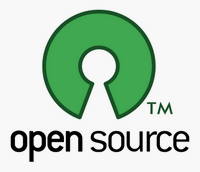 I've been working with the NHS recently - the largest public body and employer in the UK. I was astonished to discover that they are not only not using Open Source software, but that different regions of both the NHS and government are using completely different software programs. I don't suppose i should have been that surprised, because the scandal of the government's IT procurement has been well documented by Michael Cross on the Guardian and others. But the larger scandal is that despite all the signals, warnings, and alarm bells, the government has done nothing to recitify matters.
I've been working with the NHS recently - the largest public body and employer in the UK. I was astonished to discover that they are not only not using Open Source software, but that different regions of both the NHS and government are using completely different software programs. I don't suppose i should have been that surprised, because the scandal of the government's IT procurement has been well documented by Michael Cross on the Guardian and others. But the larger scandal is that despite all the signals, warnings, and alarm bells, the government has done nothing to recitify matters.
Let's make it quite clear - the Open Source movement produces major software programs which are FREE to users - both individuals and organisations. These software programs include fundamental parts of IT systems such as operating systems, and individual user programs such as text editors and emailing programs.
With Microsoft Windows - you PAY for a license. Linux or Ubuntu - are free. Use Microsoft Word - and you pay for a license. Open Office Writer - is free. The same is true for content management systems and other programs.
When the government procures a large-scale IT system for the NHS, the DVLA, or itself at national and local level - why on earth doesn't it seek the best value for taxpayers' money by commissioning a system that is free?
Proprietary systems can't share information; they can't talk to each other or share files between Bradford and Birmingham. Every new update (or yearly license) is a new expense to taxpayers; and if the company goes out of business (which is quite common in the world of IT) the customer has no redress.
This is a scandal of almost criminal proportions. It's like consciously deciding to have regional railways running on different gauges of track.
This is an important issue, both financially and politically. There is EVERY reason why public institutions such as the National Health Service and government itself, from parliament, through major departments, down to local government at town hall level, should be using (and championing) the open source movement.
The savings on the national budget would be immense. The government would free itself from the commercial grip of proprietary software, and it would link itself to the future instead of to the past.





No comments:
Post a Comment